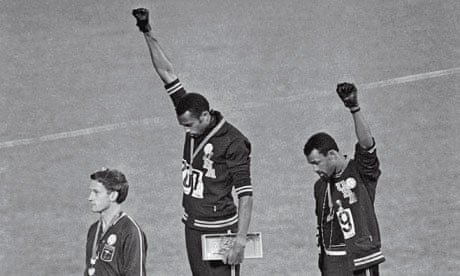
TO PAY TRIBUTE TO = rendre hommage à
Muhammad
Ali and Vietnam
His refusal
to be drafted to fight in the war transcended the boxing ring, which he had
dominated, at great personal cost.
Jun 4, 2016
– The Atlantic
Muhammad Ali’s stand against the Vietnam War transcended not only the ring,
which he had dominated as the undisputed heavyweight champion of the world, but
also the realms of faith and politics.
“His biggest win came not in the ring but in our courts in his fight for
his beliefs,” Eric Holder, the former U.S. attorney general, said Saturday.
On March 9, 1966, at the height of the war, Ali’s draft status was revised
to make him eligible to fight in Vietnam, leading him to say that as a black
Muslim he was a conscientious objector, and would not enter the U.S. military.
“My conscience won’t let me go shoot my brother, or some darker people, or
some poor hungry people in the mud for big powerful America,” he said at the time. “And shoot them for what?
They never called me nigger, they never lynched me, they didn’t put no dogs on
me, they didn’t rob me of my nationality, rape and kill my mother and father. …
Shoot them for what? How can I shoot them poor people? Just take me to jail.”
A little more than a year later, on April 28, 1967, Ali, then 25 years old,
appeared in Houston for his scheduled induction into the U.S. military. He
repeatedly refused to step forward when his name was called—despite being warned
by an officer that he was committing a felony offense that was punishable by
five years in prison and a fine of $10,000. His refusal led to Ali’s arrest and
eventual conviction—though he stayed out of prison while his case was appealed.
His license to box was suspended in New York the same day, and his title
stripped. Ali was unable to obtain a boxing license in the U.S. for the next
three years.
Ali’s continued refusal to go to Vietnam—despite
repeated pressure—coincided with the war’s growing unpopularity in the U.S. And
in the three years he didn’t fight, Ali became a prominent speaker at college
campuses across the U.S., as the anti-war movement grew in strength
President Obama, in his
remarks Saturday on Ali’s death spoke of the personal cost of the champion’s
stance during the Vietnam era.“It would earn him enemies on the left and the right, make him reviled, and nearly send him to jail,” Obama said. “But Ali stood his ground. And his victory helped us get used to the America we recognize today.”
LEXIQUE:
HE STOOD HIS GROUND
HE DIDN'T BACK DOWN
HE STUCK TO HIS GUNS
HE DIDN'T BUDGE
HE REMAINED ADAMANT
HE SAID HE DIDN'T HAVE A GRUDGE AGAINST THE PEOPLE OF VIETNAM
HE HAD A GRUDGE AGAINST PEOPLE AT HOME WHO INSULTED HIM, CALLEDHIM NAMES, LOOKED DOWN ON HIM
HE STOOD UP TO THOSE WHO HELD POWER OVER HIM/ THE ARMY, THE FBI, THE UNITED-STATES GOVERNEMENT
HE STOOD UP FOR HIS RIGHTS, HIS IDEAS, HIS PRINCIPLES
HE USED THE POWER OF WORDS TO JUSTIFY HIS DECISION TO REFUSE TO BE DRAFTED
A GREAT ORATOR

The Black Power Salute That Rocked the 1968 Olympics
Sep 27, 2014
When
Olympic sprinters Tommie Smith and John Carlos stood atop the medal
podium at the 1968 Summer Games in Mexico City, bowed their heads and
raised black-gloved fists during the playing of the national anthem,
millions of their fellow Americans were outraged. But countless millions
more around the globe thrilled to the sight of two men standing before
the world, unafraid, expressing disillusionment with a nation that so
often fell, and still falls, so short of its promise.
Smith
and Carlos
were vilified at home for their stand. They were suspended from the U.S.
team. They received death threats. But neither man ever apologized for
his raised fist or his bowed head—and neither ever had need to.
"We
were just human beings who saw a need to bring attention to the
inequality in our country," Smith said years later, in a documentary on
the 1968 Mexico City games produced for HBO. "I don't like the idea of
people looking at it as negative. There was nothing but a raised fist in
the air and a bowed head, acknowledging the American flag—not
symbolizing a hatred for it."FROM BBC NEWS IN 1968
Tommie Smith and John Carlos, gold and bronze medallists in the 200m, stood with their heads bowed and a black-gloved hand raised as the American National Anthem played during the victory ceremony.
The pair both wore black socks and no shoes and Smith wore a black scarf around his neck. They were demonstrating against continuing racial discrimination of black people in the United States.
Colin Kaepernick: Peaceful Protester

Aucun commentaire:
Enregistrer un commentaire